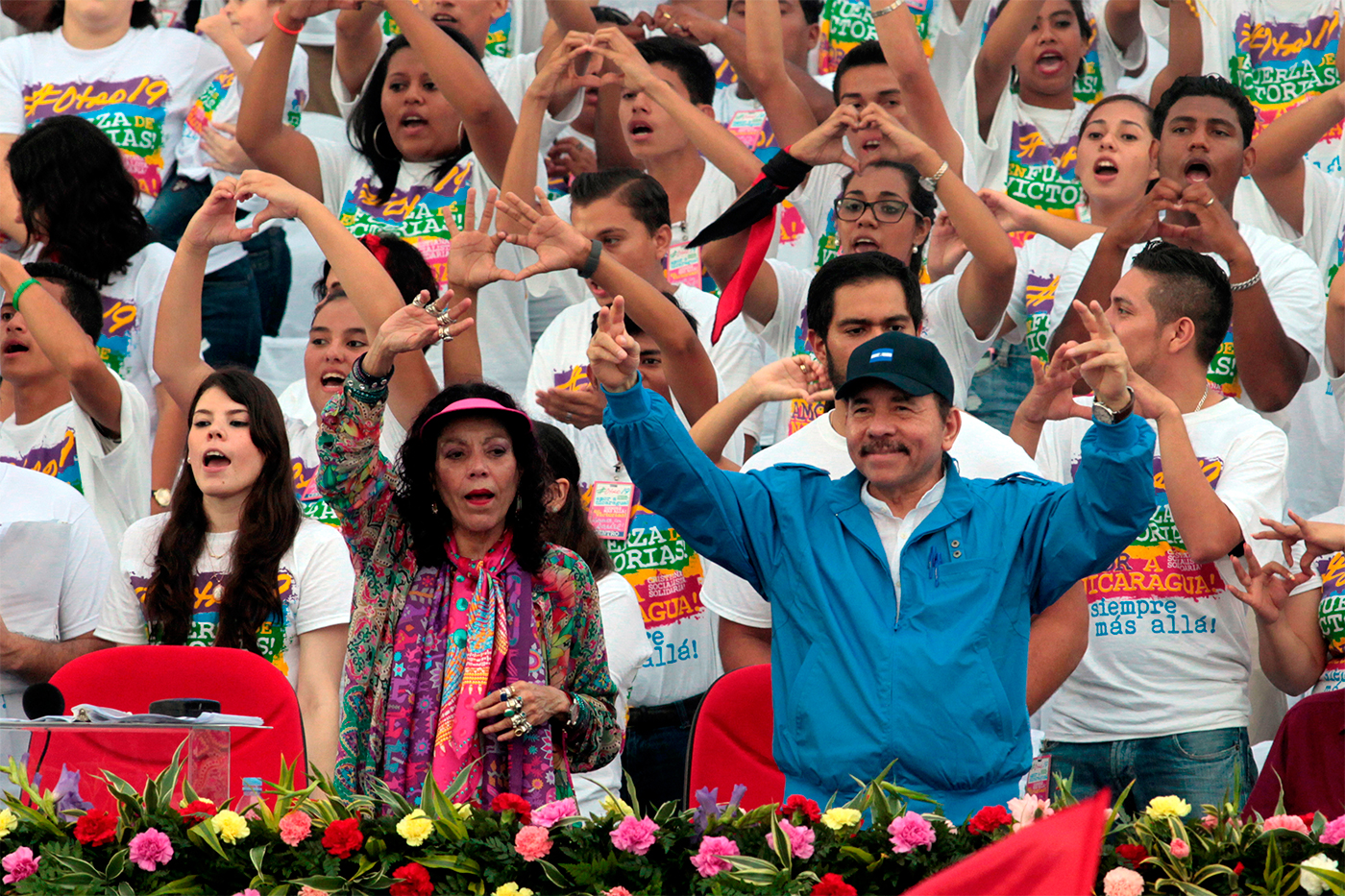Slow and Steady Wins the Race
In
Login if you are already registered
(no votes) |
(0 votes) |
When Marina Tsvetaeva wrote nearly a century ago “How many people fell in this abyss”she could hardly have been referring to the proclivity of Latin American leaders toward authoritarianism, and yet this phrase is oddly apt when describing the new power balance in Nicaragua. President Daniel Ortega is steadily moving toward establishing an authoritarian regime. Stripping the opposition of its parliamentary seats and nominating his wife for Vice President are among his latest steps.
Nicaragua is a curious country. When speaking about left-wing regimes in the Latin-Caribbean America, everybody thinks of Cuba or Venezuela, or somewhat less frequently Bolivia or Ecuador, and almost never Nicaragua, although the left wing in that country has been successfully integrated into the political system, demonstrating the viability of socialist ideas and the possibility of adapting them to the current circumstances. Current President Ortega could have, at some point, easily become Nicaraguan Fidel Castro, since he was one of the most outstanding leaders of the 1979 Sandinista revolution which put an end to the dictator Somoza’s regime. Ortega differs from the Cuban leader in that he can skilfully juggle pluralism. When, in the 1990s, the then-head of the junta, and later-President, Ortega allowed liberal democratic reforms and free elections won by the right wing headed by Violeta Chamorro, it seemed that the only thing left for him was writing memoirs about the great events of the past.

REUTERS/Oswaldo Rivas
Nicaragua's President Daniel Ortega and first lady Rosario Murillo greet supporters during celebrations to mark the 37th anniversary of the Sandinista Revolution at the Juan Pablo II square in Managua, Nicaragua July 19,2016
In the meantime, Ortega continued his political career without failing to run for President in 1996 and then in 2001. Democracy itself brought him back into power: he won the 2006 elections running against his liberal opponents, repeating his victory in 2011. In November 2016, new elections are to be held, and there is very little doubt as to who will emerge victorious since, during his presidency, Mr. Ortega has done quite a few things to weaken his opponents. The disjointed and split opposition was unable even to put forward a single candidate and, last week, it found itself in utterly dire straits the Board of Nicaragua’s National Assembly (parliament) decided to strip 28 opposition deputies of their parliamentary seats. Thus, Mr. Ortega essentially subordinated the legislature directly to himself. Aside from the “Sandinistas,” the parliament has only nominal opposition which, in fact, is governed by the ruling elite. The opposition is calling it a parliamentary coup and says that Nicaragua is sliding toward an Ortega dictatorship. Many NGOs say the same. One might think that was again some talk in the spirit of the “colour revolutions” yet, unfortunately, even the President’s former allies from the revolutionary Sandinista movement condemn the leader’s increasing personal power, as he steadily moves toward establishing a dictatorship of the sort he had once rebelled against. Besides suppressing the opposition, Mr. Ortega is accused of controlling the media, of illegal enrichment, of corruption, and of nepotism.
The dictatorship could also involve family members and become hereditary: on August 4, 2016 President Ortega announced that his running mate for the November presidential elections will be his spouse Rosario Murillo who will be his Vice President. Ms. Murillo has been engaged in politics for many years and is considered to be the President’s right-hand person. The Ortega-Murillo family calls this move “a triumph of emancipation,” since Rosario will become the first woman in Nicaragua to hold such a high political office. The opponents of the current authorities are certain that Mr. Ortega will do anything he can to retain power: even if he cannot perform his functions due to his age (he is 70), his spouse, who is five years younger, will take over. Moreover, the opposition believes that electing Rosario Vice President is unconstitutional, yet, even if it is so, Mr. Ortega is hardly concerned about it: he has already managed to override the constitutional system which does not allow the reelection.
It is clear that this autumn’s presidential elections will hold no surprises for the ruling elite, and there is no doubt that the Sandinistas and Daniel Ortega will win. However, the slide toward authoritarianism is beginning to gradually annoy the public. Thus far, this annoyance has not reached the critical level, yet rumours are already circulating about a possible reappearance of the “contras,” who, as we remember, fought against the Sandinistas’ junta is the 1980s with US support. If this is true, Mr. Ortega will be in for a difficult presidency marked by a confrontation with a force that is clearly not inclined towards negotiation. It appears that the “dictator and rebels” picture may become a feature of Nicaragua again, only with a former rebel now being the dictator. Well, of course, no one has yet abolished historical irony.
(no votes) |
(0 votes) |




